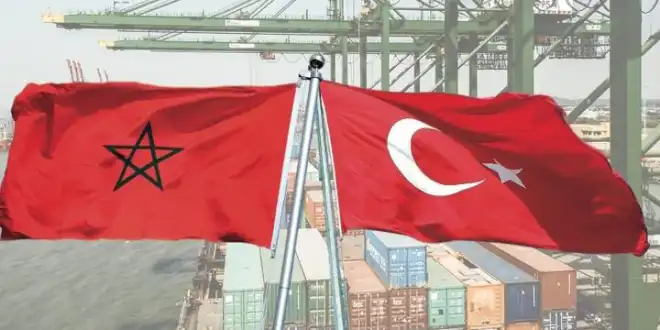
Morocco and Turkey aim to transform their two-decade-old free trade agreement into a comprehensive industrial partnership,addressing a persistent $3 billion trade deficit favoring Turkey. Business leaders from both nations convened Thursday,September 4,2025,at Morocco’s employers’ federation headquarters to explore investment opportunities beyond traditional import-export dynamics.
Bilateral trade reached nearly $5 billion in 2025,establishing Turkey among Morocco’s principal economic partners. Turkish exports to Morocco span textiles,steel,machinery,electrical equipment,and agro-food products,while Moroccan exports concentrate primarily on automotive components and fertilizers. This asymmetry has created significant trade imbalance over twenty years despite complementary economic structures.
Mohamed Bachiri,president of CGEM’s Industrial Development Commission,emphasized transcending conventional trading patterns in textile sectors toward value-creating industrial partnerships generating employment. Renault Morocco’s general director highlighted the kingdom’s investment attractiveness across automotive,energy,textile,agro-food,logistics,and aeronautics sectors,suggesting Morocco’s automotive industry model could inspire collaboration in other domains.
Foreign direct investment in Morocco surged 55 percent in 2024,though Turkish investments remain concentrated in textiles,construction,and distribution. Turkish operators expressed interest in expanding into aeronautics,mining,e-commerce,events,tourism,and green ammonia sectors during Thursday’s roundtable. Several Turkish companies view Morocco’s fifty free trade agreements as strategic gateway access to European and African markets.
The meeting represents crucial preparation for November 2025’s business forum in Istanbul,aimed at renewing economic and commercial partnerships. Both delegations recognize substantial growth potential in diversifying investment portfolios and establishing manufacturing bases that create local value rather than perpetuating importer-exporter relationships.
This strategic shift toward industrial cooperation could rebalance trade dynamics while leveraging each country’s comparative advantages.
United News - unews.co.za